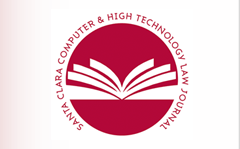Abstract
This article critiques and refines the subject-matter eligibility inquiry in patent law by examining the process of creativity in the context of software-implemented inventions. As a substantive critique of § 101 jurisprudence, this article, informed by copyright law, proposes a working hypothesis for a general structure of the subject-matter eligibility inquiry in which a critical determination is the appropriate level of abstraction for claim construction. As a discursive critique of the limits and limitations of judicial language, this article argues that courts have incorrectly presumed that contemporary legal thought is equipped, conceptually and linguistically, to understand the full significance of modern technologies and the grammars of their creation. Closely reading the human agency and design choices that inhere in technology, this article seeks to resolve the open questions posed by Mayo Collaborative Servs. v. Prometheus Labs., Inc., to harmonize Diamond v. Diehr and Parker v. Flook, and to refine Alice Corp. v. CLS Bank Int’l.
Recommended Citation
Scott T. Luan,
All That is Solid Melts Into Air: The Subject-Matter Eligibility Inquiry in the Age of Cloud Computing,
31 Santa Clara High Tech. L.J. 313
(2014).
Available at: https://digitalcommons.law.scu.edu/chtlj/vol31/iss2/4
